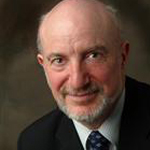Chris Packard Articles


Why should clinical practice move to an intensive LDL-C lowering approach?
Professor Chris Packard discusses the need for this change in the light of the 2019 ESC/EAS dyslipidaemia guidelines.
read more »

How do clinicians translate intensive LDL-C lowering to their practice?
Professor Chris Packard discusses the highest-risk-highest benefit strategy.
read more »
Treating high risk cardiovascular disease: Is combination lipid lowering therapy now the rule not the exception?
In 2019 the European Society of Cardiology (ESC) and European Atherosclerosis Society (EAS) updated their guidelines for the management of dyslipidaemia to prevent atherosclerotic cardiovascular disease (ASCVD). On the basis of evidence from IMPROVE-IT with ezetimibe and the two landmark PCSK9 inhibitor trials, FOURIER with…
read more »

Very low lipoprotein(a) and very low LDL cholesterol – are they safe?
High lipoprotein(a) [Lp(a] is a cardiovascular risk factor. With the development of novel therapies for lowering elevated Lp(a), a key concern is whether very low levels pose any risk. A similar debate has engendered with LDL cholesterol. Professor Chris Packard, University of Glasgow, UK puts…
read more »
Preventing cardiovascular disease: the value of early signs of cardiac injury
Professor Packard (University of Glasgow, UK) discusses how early signs of cardiac dysfunction/injury (such as troponin I, a biomarker of cardiomyocyte damage or stress) may help in identifying individuals at risk of cardiovascular events, with insights from the WOSCOPS study. Translating these insights to primary…
read more »
Legacy effects: Does early intensive LDL lowering treatment modify the atherosclerotic process?
Professor Packard, College of Medical, Veterinary and Life Sciences, University of Glasgow, Glasgow, UK discusses follow-up data from major statin trials and considers the potential mechanism for the legacy effect seen in some trials, such as WOSCOPS. These findings raise a key question: Would phased…
read more »
PCSK9 inhibitors, legacy effects and long-term benefits
Prof Chris J Packard, College of Medical, Veterinary and Life Sciences, University of Glasgow, discusses the potential of profound LDL lowering to alter the natural history of atherosclerotic disease Genetic, epidemiological, clinical trial and pathological data come together to focus intervention strategies on LDL as…
read more »







